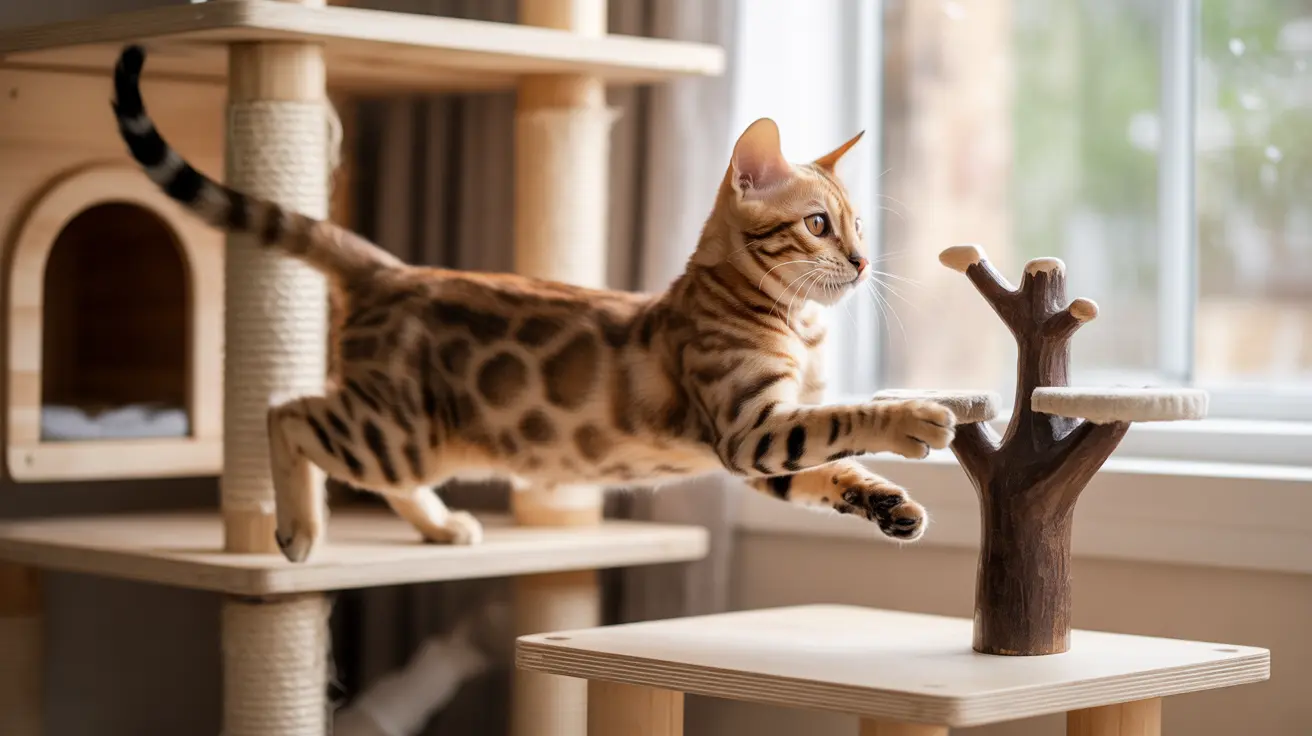Welcome to the comprehensive guide on pet rat care, where we'll explore everything you need to know about keeping these intelligent and affectionate creatures as pets. Domesticated rats have earned their place as beloved companions, thanks to their remarkable ability to form deep emotional bonds with their owners and their relatively straightforward care requirements.
While pet rats may have shorter lifespans compared to other companion animals—typically 2 to 4 years—their capacity for love, playfulness, and interaction makes every moment worthwhile. Whether you're a new rat owner or considering bringing these delightful pets into your home, understanding proper care techniques is essential for ensuring they live their best possible lives.
This guide covers all aspects of rat care, from housing and nutrition to health monitoring and social needs, helping you create an enriching environment where your furry friends can thrive.
Understanding Rat Lifespan and Care Basics
The average rat lifespan ranges from 2 to 4 years in captivity, significantly longer than their wild counterparts who rarely survive beyond one year. This extended lifespan is directly linked to the quality of care they receive, including proper nutrition, housing, and medical attention. To maximize your rat's lifespan, it is important to provide consistent care and a stimulating environment.
Factors Affecting Rat Longevity
- Genetics and breeding background: Choose rats from reputable breeders who focus on health and temperament, as inherited traits play a significant role in overall vitality and resistance to illnesses.
- Quality of housing and environment: Clean, secure, and stimulating accommodations help reduce stress and limit the risk of accidents or illness.
- Diet and exercise routine: A nutritionally balanced diet and daily opportunities for activity help maintain healthy body weight and prevent lifestyle-related diseases.
- Regular veterinary care: Routine checkups and prompt attention to illness are essential in preventing, identifying, and treating health issues early.
- Social interaction and mental stimulation: Socialized rats with access to interactive play, toys, and companionship tend to live happier, healthier, and sometimes longer lives.
Creating the Perfect Rat-Friendly Environment
A proper rat cage setup is fundamental to your pets' well-being. The environment should be spacious, secure, and enriching to support both physical and mental health. Offering an environment that mirrors their natural behaviors, such as exploring, climbing, and nesting, helps prevent boredom and related behavioral issues.
Essential Housing Requirements
- Multi-level cage with ample climbing opportunities: Choose a tall enclosure with ramps and shelves so rats can climb and explore. Vertical space is as important as floor space.
- Secure, well-ventilated structure: Cages should feature small bar spacing to prevent escapes and plenty of ventilation for fresh air circulation.
- Best rat bedding: Opt for paper-based or aspen bedding—avoid cedar or pine, as their aromatic oils are harmful to rats’ respiratory health.
- Multiple hiding spots and sleeping areas: Provide houses, tunnels, hammocks, and nesting materials so each rat feels safe and comfortable.
- Regular cleaning schedule to maintain hygiene: A clean habitat helps prevent the buildup of ammonia from urine, reducing the risk of respiratory disease. Spot-clean daily and perform a full cage clean weekly.
Optimal Rat Nutrition Guidelines
Proper rat nutrition forms the cornerstone of good health. Providing a diet that meets all of your rat’s nutritional requirements ensures optimal growth, immune function, and energy levels. Avoid feeding your rats processed foods or those high in sugar and fat.
Daily Diet Essentials
- High-quality laboratory blocks as the main food source: These provide balanced nutrition specifically designed for rats and should make up the bulk of their diet.
- Fresh vegetables and limited fruits: Leafy greens and crunchy veggies supplement lab blocks with fiber, vitamins, and minerals. Offer fruits occasionally as healthy treats.
- Clean, fresh water available at all times: Check water bottles or bowls daily to ensure they're functioning and the water is uncontaminated.
- Carefully selected rat treats for training and bonding: Use in moderation to prevent obesity. Examples include small pieces of cooked egg, pasta, or seeds.
Rat-Safe Foods to Include
- Leafy greens like kale, romaine lettuce, and spinach for vitamins and minerals.
- Root vegetables such as carrots and turnips, which are enjoyed by most rats.
- Lean proteins such as cooked chicken or tofu can be offered in small amounts.
- Whole grain pasta or bread (in moderation) as occasional treats that provide additional fiber.
Health Monitoring and Disease Prevention
Regular health monitoring is crucial for catching potential issues early. While rats are generally robust pets, they are prone to certain illnesses, especially respiratory diseases and tumors. Owners should familiarize themselves with normal rat behaviors and actively watch for any signs of distress.
Signs of Sick Rat to Watch For
- Respiratory difficulties or excessive sneezing: Wheezing, noisy breathing, or nasal discharge require prompt vet attention.
- Changes in appetite or water consumption: Refusal to eat or drink, or drinking much more/less than usual, signals a problem.
- Unusual lumps or bumps: Tumors are common in rats, particularly as they age; these should always be checked by a vet.
- Lethargy or decreased activity: If your normally active rat becomes withdrawn or listless, it may be unwell.
- Changes in grooming habits: Poor coat condition or lack of grooming can indicate illness or discomfort.
It is important to have a knowledgeable veterinarian experienced with small animals or exotic pets, as early and effective treatment greatly improves outcomes.
Social Needs and Behavioral Enrichment
Understanding rat behavior and meeting their social needs is vital for their emotional well-being. Rats are highly social creatures that thrive in groups. Keeping them in pairs or small groups prevents loneliness and stress, which can negatively impact their health. In addition to housing them together, owners should interact with their rats daily, offering affection and mental challenges.
Rat Training and Bonding Tips
- Regular handling sessions: Gently pick up and hold your rats every day so they become accustomed to human interaction.
- Positive reinforcement training: Use treats and praise to encourage desired behaviors such as coming when called or learning tricks.
- Interactive playtime outside the cage: Supervised play in a safe, enclosed area offers exercise and mental stimulation.
- Gentle socialization techniques: Be patient and calm, allowing shy rats time to adjust. Bonding may take several weeks, but the results are rewarding for both you and your pets.
Exercise and Environmental Enrichment
Rat enrichment and regular exercise are essential for maintaining both physical and mental health. Without adequate activities, rats can become bored and develop destructive or unhealthy habits. Providing a variety of toys and opportunities for exploration allows rats to express their natural instincts.
Exercise and Play Ideas
- Supervised out-of-cage time: Let your rats explore new environments under close supervision, ensuring they are safe from hazards.
- Climbing structures and ropes: Use ladders, ropes, and platforms to encourage climbing and jumping.
- Puzzle toys and treat dispensers: Stimulate their minds by offering food in creative ways that require problem-solving.
- Tunnels and exploration areas: Cardboard tubes, boxes, and commercial tunnels let rats hide, explore, and run, satisfying their curiosity and need for exercise.
Frequently Asked Questions
- How long do pet rats live? Pet rats typically live 2-3 years, though with excellent care some can reach 4 years.
- What should I feed my pet rat? A balanced diet of lab blocks, fresh vegetables, and occasional treats provides all the nutrients your rat needs.
- How much space do pet rats need? A large, multi-level cage is best, offering space to climb and explore. Each rat should have ample room to play without overcrowding.
- Are rats social animals? Yes, rats are extremely social and should be housed with companions to ensure they remain happy and stress-free.
- What are signs my rat is sick? Watch for changes in activity, sneezing, labored breathing, loss of appetite, or unusual lumps, and consult a vet when concerned.
- How often should I clean my rat's cage? Spot clean daily and perform a thorough cleaning at least once a week to maintain a healthy habitat.
- Can I keep a single rat? While possible, single rats are prone to loneliness. Pairs or groups are recommended for optimal welfare.
- What toys do pet rats like? Rats enjoy a variety of toys such as tunnels, ropes, chew toys, and climbing apparatus, which keep them active and engaged.
- Do rats need to see a vet regularly? Annual checkups are advised, and you should visit a vet promptly if any health concerns arise.
- How can I bond with my pet rat? Handle your rats gently and consistently, offer treats, and spend quality time with them each day to strengthen your bond.
Caring for pet rats is a rewarding experience that requires dedication, knowledge, and attention to detail. By following these comprehensive care guidelines and maintaining regular veterinary check-ups, you can help ensure your rats live happy, healthy lives. Remember that while their time with us may be relatively short, the joy and companionship they bring make every moment precious.






